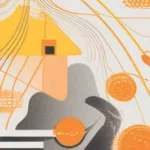The Call for Applications is now closed.
We are excited to announce the second iteration of the Summer of Protocols program! In 2024, we will be building on the research of the 2023 cohort by focusing on downstream applications, experimentation, and field testing. The overall goal is to start building the deep capabilities and broad literacy it will take to live in an increasingly protocolized world. The 2024 program comprises three tracks:
- Protocol Improvement Grants: This track is aimed at discovering the general principles of improving protocols. The track will award grants of $90,000 each to 5 two-person teams to prototype and field-test improvements to a real-world protocol. Learn More.
- Protocol PILL Challenge: This track is aimed at finding interesting ways to “protocol pill” lay audiences and cultivate broader protocol literacy through popular media such as short stories, visualizations, and memes. This track will award
2030 small development grants of $1000 each. Learn More. - Partner Program: This track is aimed at building a broader foundation of institutional capabilities and knowledge around protocols in specific domains, through workshops and sector-specific research projects undertaken in partnership with leading institutions and organizations. Learn More.
We refer to these tracks informally as PIGs, PILLs, and Partners. Besides these three tracks, SoP 2024 will also offer participation opportunities and travel support for participants in SoP 2023, to help them continue their research, and influence 2024 projects.
The application deadline for the PIG and PILL grants is April 12th, 2024. Award decisions will be made the week of April 19th. The program will begin on May 8th. Links to additional resources can be found here. All key dates are listed here.
Background information on domains and problems of interest can be found below.
Domains and Problems
SoP 2024 has identified a few domains and problems of broad interest for advancing the state of the art around protocols. We particularly invite applications on all three tracks that are aligned with these. In our program this year, we are deliberately focusing on how to improve, evolve, and adapt existing protocols, in both incremental and radical ways, rather than on clean-sheet design of new protocols. This focus is based on findings from the 2023 program, which highlighted the extent to which protocols seem to evolve over long periods in accretive ways, with new layers building on old layers, and old layers being gradually improved by technological means.
Unlike invention and traditional entrepreneurship processes, we hypothesize that protocol-based capabilities must be grounded to a much greater extent in discovery and analysis of extant practices in the real world, using methods such as ethnographic observations, historical data analysis, failure incident analysis, and interviews with existing users and stewards of protocols.
Domains
Domains are well-scoped areas of knowledge and expertise, with well-developed lore and standards of literacy, significant sectoral histories, and established core protocols. The following domains are of particular interest for SoP 2024.
- Protocols for AI and robotics
- Protocols for governance and public policy
- Protocols for management and organization design
- Protocols for art and culture production
- Protocols for climate action/terraforming
Problem Areas
Problem areas are sets of related general problems rooted in phenomena that manifest in similar ways across protocol domains, and offer potential for general solution and management approaches. The following problem areas are of particular interest for SoP 2024.
- Simplifying complex protocols, especially technological ones
- Lifecycle and ossification/maturation/renewal management of protocols
- Protocols and patterns of conflict (ranging from military and policing to economic and cultural)
- Protocols and rare or exceptional events (including “long tail” or “black swan” events)
All these domains and problems can be addressed at a variety of levels from small and local to large-scale and global, but whatever the chosen level, we encourage SoP participants to focus on existing, tangible protocols that can be studied through methods such as historical analysis, direct observation, or interviews with seasoned participants. For example, if you choose to study public health protocols, you might want to study behaviors such as shaking hands or wearing masks, or institutional processes at the WHO that result in pandemics being declared. If you’re interested in urbanism, you might want to study existing protocols for dealing with traffic or homelessness. But in all cases, you should begin with how the individuals, institutions, and technological elements actually behave today, rather than in a perfect hypothetical world. An example of the latter is studying urban protocols from the perspective of trying to design a new city from scratch on virgin territory. While this is of course an interesting problem in its own right, it is not in-scope for SoP 2024.
Several essays and talks from SoP 2023 are directly relevant to the domains and problems of 2024. In particular, we recommend prospective applicants read some of the following essays before applying.
- Standards Make the World by David Lang
- Addressable Space by Chenoe Hart
- Protocols in (Emergency) Time by Olivia Steiert
- Protocols Don’t Build Pyramids by Drew Austin
Protocol Improvement Grants
 This track will award 5 protocol improvement grants of $90,000 each to teams of two individuals. Each team will be expected to work full time over the summer (roughly May 1 – Aug 31, but with some flexibility) to research, prototype, and field-test improvements to an existing protocol. Each team will also receive:
This track will award 5 protocol improvement grants of $90,000 each to teams of two individuals. Each team will be expected to work full time over the summer (roughly May 1 – Aug 31, but with some flexibility) to research, prototype, and field-test improvements to an existing protocol. Each team will also receive:
- Two Protocol Kits
- Travel support
- Access to a small, shared research budget
- Mentorship from program staff and alumni
- Participation opportunities at partner events
The program will be virtual, but with several structured elements to foster collaboration and cross-pollination and regular online interactions to help you stay on track.
Proposals can be focused on any kind of protocol, including but not limited to political, cultural, economic, infrastructural, or organizational. While a technological element is not necessary, we encourage including one. Please note that this grant program is not meant to fund fundamental research on blockchains (we encourage you to look at other Ethereum Foundation programs, such as the Ethereum Support Program if you’re interested in such work). You are, however, encouraged to explore potential uses of blockchain technology to improve other protocols, as well as ways to inject insights from other protocol domains can to blockchain ecosystems.
To apply:
- Your team must post an RFC (Request for Comments) in the RFCs section of the Summer of Protocols forum for public comments.
- Each team member must submit an individual application.
Applicants for the Protocol Improvement Grants can choose to explore incremental or radical improvements, but the methodology must begin with an understanding of an existing real-world protocol. Please make sure to read the Domains and Problems section before applying.
The deadline for applications is April 12, but we encourage you to post your RFC and submit a draft application (you will be able to edit till the deadline) as early as possible. Awards will be announced by April 19-26, and the program will begin on May 8. We will be conducting a town hall for interested applicants on March 20, 2024 at 9AM Pacific.
Individual application form link | RFCs Forum link.
Back to topProtocol PILL Challenge
 The Protocol Pill Incepting Lore and Literacy (recursively, PILL) Challenge will award up to 20 development grants of $1000 each to individuals who want to create a protocol-themed creative work with memetic potential over the summer, such as a short story, graphic novel, illustration, poster, meme campaign, or short audio/video works. An additional 10 grants, sponsored by GCC (see partnerships section below), will be available for people who want to create works with Chinese themes, or by applicants from Chinese-speaking regions.
The Protocol Pill Incepting Lore and Literacy (recursively, PILL) Challenge will award up to 20 development grants of $1000 each to individuals who want to create a protocol-themed creative work with memetic potential over the summer, such as a short story, graphic novel, illustration, poster, meme campaign, or short audio/video works. An additional 10 grants, sponsored by GCC (see partnerships section below), will be available for people who want to create works with Chinese themes, or by applicants from Chinese-speaking regions.
Note that nonfiction essays are not eligible. Each PILL grant awardee will also receive:
- One Protocol Kit
- Mentorship from program staff and alumni
- Opportunities to participate in partner programs, subject to capacity
To apply for the development grant you must fill out the application form, and post a short pitch in the RFCs section of the Summer of Protocols forum (limit one per applicant) by April 12, and release your work publicly by June 30.
Development Grant Application link | RFCs Forum link
Applicants for the Protocol Pill Challenge can freely exercise artistic license in their works, but we highly recommend exploring ideas informed by real-world protocols. We recommend reading Matt Webb’s essay, Who could write protocol fiction for speculative infrastructure for some ideas on how to explore protocols through fiction (similar principles will apply to other creative media). Please make sure to read the Domains and Problems section before applying.
Back to topPartner Program
 This year, we are experimenting with an invitation-only institutional partner program focused on supporting organizations interested in developing protocol-based capabilities and expertise in their respective domains. The collaboration model will be mutually designed on a case-by-case basis, but might involve elements such as conducting a specialized workshop, and/or conducting an internal protocol-themed research project. For this track, we will be offering in-kind resources including protocol kits, and support/participation by SoP staff, alumni, and current researchers. The program currently comprises the following organizations:
This year, we are experimenting with an invitation-only institutional partner program focused on supporting organizations interested in developing protocol-based capabilities and expertise in their respective domains. The collaboration model will be mutually designed on a case-by-case basis, but might involve elements such as conducting a specialized workshop, and/or conducting an internal protocol-themed research project. For this track, we will be offering in-kind resources including protocol kits, and support/participation by SoP staff, alumni, and current researchers. The program currently comprises the following organizations:
-
- Centre for Strategic Futures (CSF), Singapore: CSF and the SoP will work together on a research track focused on novel public policy and governance protocols, with a special emphasis on Southeast Asia. This track will be centered around the Datus and Nusas Workshop, to be held in Singapore the week of May 26th.
- Edge City: Edge City is a novel community experiment that convenes people working at the frontiers of tech, science, and society in popup villages across the globe. Edge City and SoP will collaborate to host a Protocol Week at Edge Esmeralda, in Healdsburg, CA, most likely during the week of June 23-27.
- Global Chinese Community (GCC): The Global Chinese Community of Universal Digital Commons (GCC) will collaborate with SoP to support Chinese protocol research, as well as provide additional support to outstanding researchers worldwide in the form of matching grants. GCC is providing additional funding of $50,000 to be used as detailed in this thread.
We will be able to formally support 2-3 additional partners depending on the complexity of the collaboration. If you would like to involve your institution, please contact us for an exploratory conversation using the inquiry form link below. We will invite you to participate formally if there is a good fit with our 2024 goals and existing constraints. Beyond the formal partnerships, we will also be creating a set of resources to informally support organizations that want to participate in self-directed ways.
Partner Program Inquiry form link
Back to topAdditional Resources
Updates will be shared on an ongoing basis through the Summer of Protocols forum and the Protocolized newsletter. If you’re interested in participating in the program in any way, we highly recommend you sign up for both channels.
The Summer of Protocols core program is funded by the Ethereum Foundation. Partner institutions fund their own participation. You can learn more about the its activities and other grant opportunities on the foundation website.
Back to topKey Dates
- March 31, 2024: Soft deadline for posting RFCs for applications
- April 12, 2024: Applications for PIG and PILL grants due
- April 19-26: PIG and PILL grants awarded
- March 20: Town hall session on the program, 9AM Pacific. Calendar link.
- May 8: Program begins
- May 27-28: Datus and Nusas Workshop (Singapore)
- June 23-28: Protocol Week at Edge Esmeralda (Healdsburg, CA)
- June 30: PILL grant output deadline
- Aug 25-31: PIG draft submissions event (format TBD)
- Aug 31: Program concludes
Dates for partner events will be announced as they are finalized.
Back to top
